Dan Kent '16 and His Entrepreneurial Journey
Dan Kent '16 shares advice for current Yale SOM student entrepreneurs and discusses his two successful ventures, Jobwell and Net Literacy.
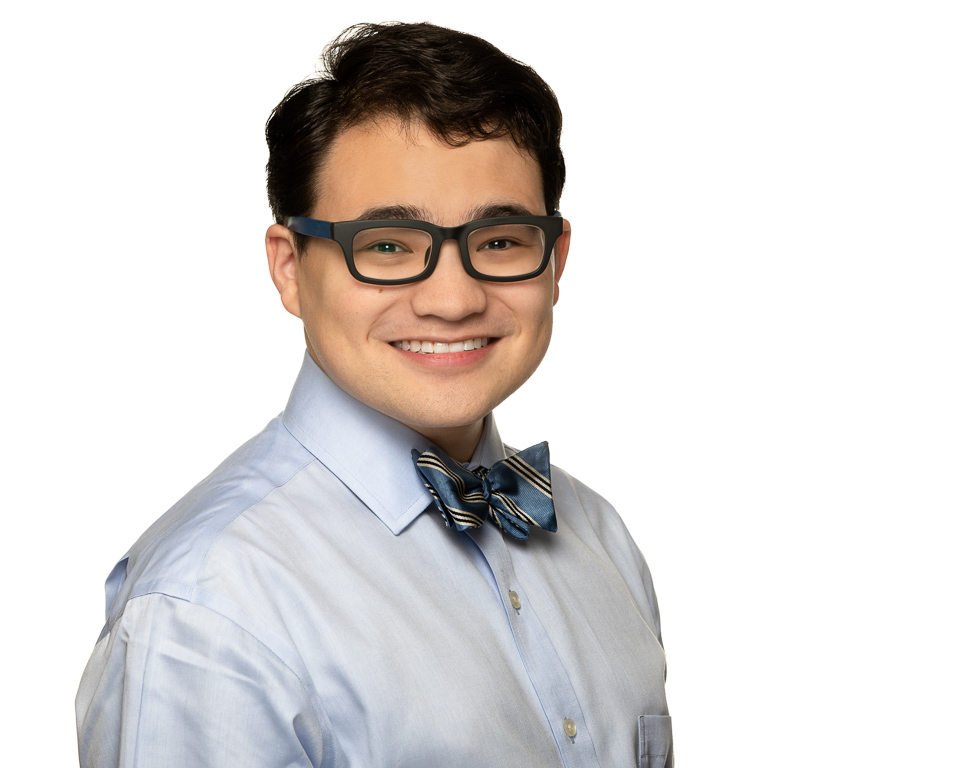
What led to your decision to attend Yale SOM in 2012?
In middle school, I founded Net Literacy, an NGO where students comprise 50% of the Board of Directors and do all the volunteering in initiatives designed to help increase digital literacy and bridge the digital divide. For the next ten years and through college, my friends and I managed Net Literacy as we raised funds, recruited volunteers, and served communities. During that time, I felt that our successes were sometimes because we were as lucky as we were good and I worried that my lack of a formal business education could impact the company. I began looking for an exceptional opportunity so that I could better serve Net Literacy and accelerate my career and found that uniquely at SOM.
When I started at SOM, I came straight out of undergrad as a Silver Scholar, through a program created by Professor and serial (and cereal) entrepreneur Barry Nalebuff for undergrad students to matriculate directly into the MBA program. SOM’s Silver Scholars program is unique among the other peer programs that target graduating seniors as it is the only one that enables students to immediately start taking MBA classes and then to work for one or more years between their first and second years of MBA courses - as opposed to deferring school for some number of years and working in an entry-level role during that period of time. Over the course of the first year, as students are exposed to business frameworks and models that are taught through the integrated curriculum, I developed a more holistic appreciation of the important considerations business leaders face and learned the technical skills that would allow me to become a more effective professional.
While SOM’s Silver Scholars program was what captured my attention, the one thing, hands-down, that sold the opportunity for me was SOM’s community. Among the half-dozen other business schools I was considering, SOM’s community was the one that I felt the strongest connection to, even before I stepped foot on campus for a visit. Speaking with alumni and current students as I worked my way through the application process, I felt their passion as they helped me understand their story and why they chose SOM. As I learned about this community, I realized that not only would I be able to learn from and be part of the SOM community and network, but the Yale University and the Global Network for Advanced Management would also enable me to have a greater worldwide network of classmates, students and alumni who I could grow with throughout my career. And as I ventured out with some of my classmates into startups and entrepreneurship after graduation, I was confident that I wouldn’t be alone because I would be supported by a strong network of fellow entrepreneurs.
During your time as a student at Yale SOM, what courses, programs, or events did you find beneficial for your future goals? Were there particular areas that you were involved in that supported your entrepreneurial journey?
When I matriculated into SOM, I set my sights to marrying quantitative, data-driven methods of marketing, technology, and entrepreneurship, particularly through classes during my second year. Four classes were especially important in shaping my perspectives and providing me the skillset to become an entrepreneur.
In the integrated core curriculum, MGT 408 Introduction to Negotiation was the class that I approached with the most trepidation because I considered negotiations to be a very confrontational exercise and I am a fairly non-confrontational individual. But Professors Nalebuff and Daylian Cain taught us that it’s not just about confronting the other parties in negotiations, but rather how to come to a consensus and develop a solution that creates the most value for all parties. As an entrepreneur, I have repeatedly relied on the skills that we honed in class and in the negotiations extension course when working with potential partners, investors, and customers.
MGT 656 Managing Software Development was one of the most popular classes at SOM, taught by the Associate Dean of Entrepreneurship, Kyle Jensen. The course is a survey through the software development life-cycle with a focus on “agile” methods and learning about management techniques around hiring technical teams, planning, implementing, and maintaining software projects. We did a deep dive into coding and worked on creating web applications in teams. I developed great friendships in this course, particularly with a number of my classmates who were also interested in entrepreneurship. The course also inspired me to become a Certified Scrum Product Owner.
MGT 645 Startup Founder Studies, taught by Kyle Jensen, focused on combining academic research about startups together with bringing in entrepreneurship practitioners who spoke to an intimate group of students on the different challenges and strategies for developing a successful startup. From this class, I developed a cohort of other entrepreneurs who I could ask for advice and help as I worked on my own venture. Further, I frequently referred back to the readings and books that were assigned during this course and have recommended books like The Founder's Dilemmas: Anticipating and Avoiding the Pitfalls That Can Sink a Startup by Noam Wasserman to other founders that I have worked with in the Bay Area.
The twin classes of MGT 851 and MGT 852, Strategic Market Measurement and Listening to the Customer, taught by Professor Aniko Öry, have been critical to my development as a data-and-customer-focused entrepreneur. In Strategic Market Measurement, students learn about data science techniques and protocols to analyze quantitative marketing data, particularly around customer segmentation. We then learned qualitative methods to understand customer’s wants and needs in Listening to the Customer and had an opportunity to put our learning into practice with a praxis component.
What has been thrilling is that Professor Öry and the Program on Entrepreneurship at SOM, led by Kyle Jensen, have been working to engage more current student and alumni startups as part of the praxis component and this past year’s class worked with my startup. It was an amazing outcome and you can read more about it here.
You are the co-founder of not one, but two ventures! Could you share more about both Net Literacy and Jobwell and how these ideas came to fruition?
When I was growing up, I spent most of my time reading books and playing computer games and when I was old enough, I joined my library’s Teen Volunteer Corps and served as an instructional aid in the computer and Internet classes that were put on by the reference department for our senior citizen patrons. During one class, a gentleman whom I was helping told me that he loved the program because he would be able to email his grandchildren, but added that it was a shame that there were so many of his mobility impaired neighbors at his retirement home who were unable to attend the library’s classes. As a middle school student at the time, I felt that no one should be denied the opportunity to learn, particularly about using a computer, and told him that I’d try to help.
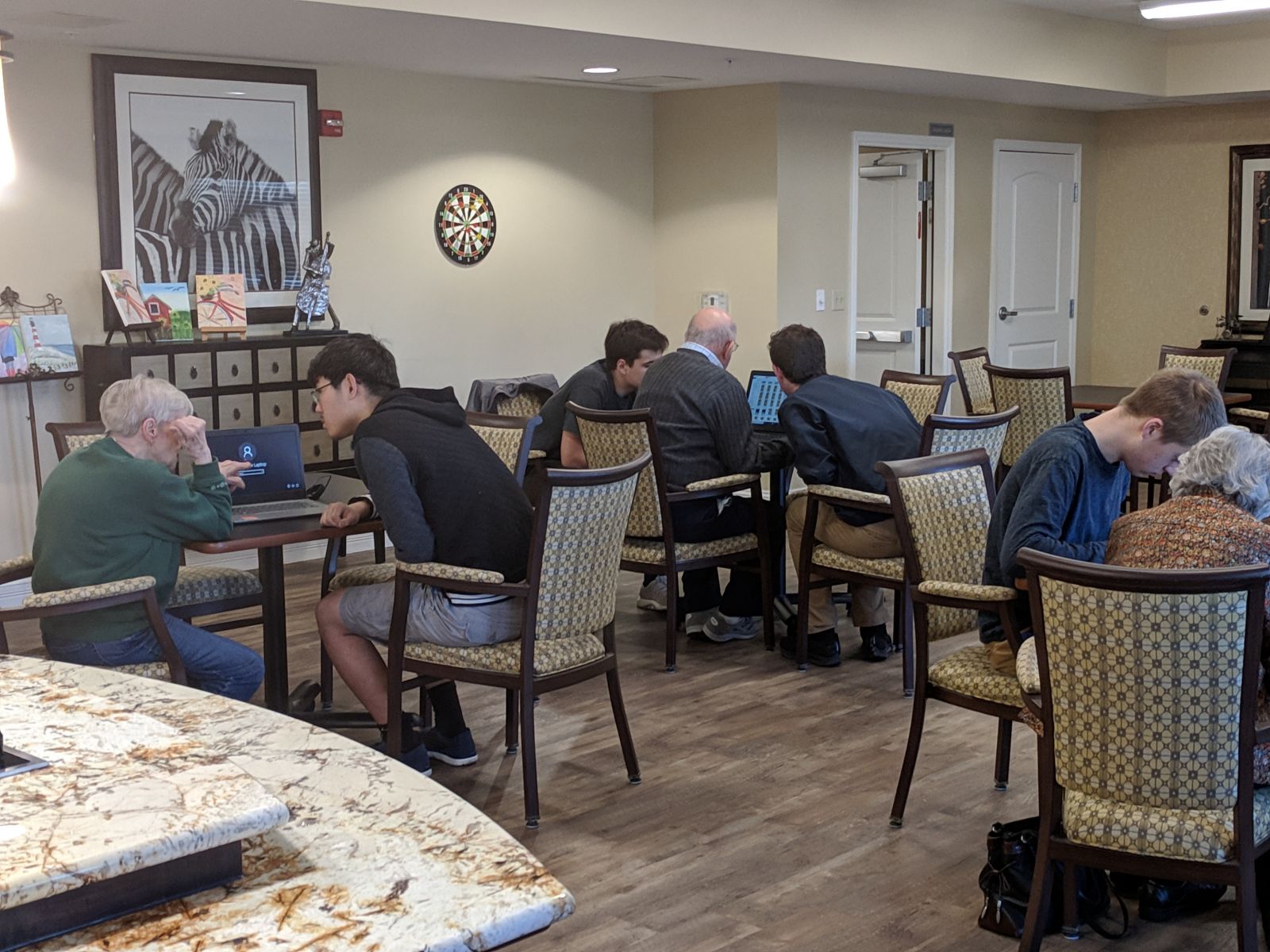
I searched around but was unable to find a local nonprofit that would visit retirement homes and teach seniors computer and internet skills; so I contacted ten retirement homes and asked the program directors if their residents would be interested in computer classes. Nine out of the ten said yes, but they didn’t have a public computer lab within their facility, and didn’t think this was possible. I asked the reference librarian for permission to modify her computer skills curriculum, called our mayor to see if we could hold a computer drive at city hall, and asked my friends to help repurpose the computers that were donated to us and volunteer in classes to teach senior citizens. The seniors thought the middle school kids that were teaching them were “cute” and reminded them of their grandchildren, while my middle school friends felt it was pretty cool to be teaching adults. It just “worked.”
Fast forward 16 years to 2019, and we’re still a youth-empowered NGO where students comprise 50% of the Board and perform all of the volunteering. Many of our 4,500 volunteers are urban teens and have learned leadership, job, STEM, and life skills while serving their community. And we’ve provided over $14M in services and donated 43,000 computers while increasing broadband access to over 250,000 individuals throughout the Midwest.
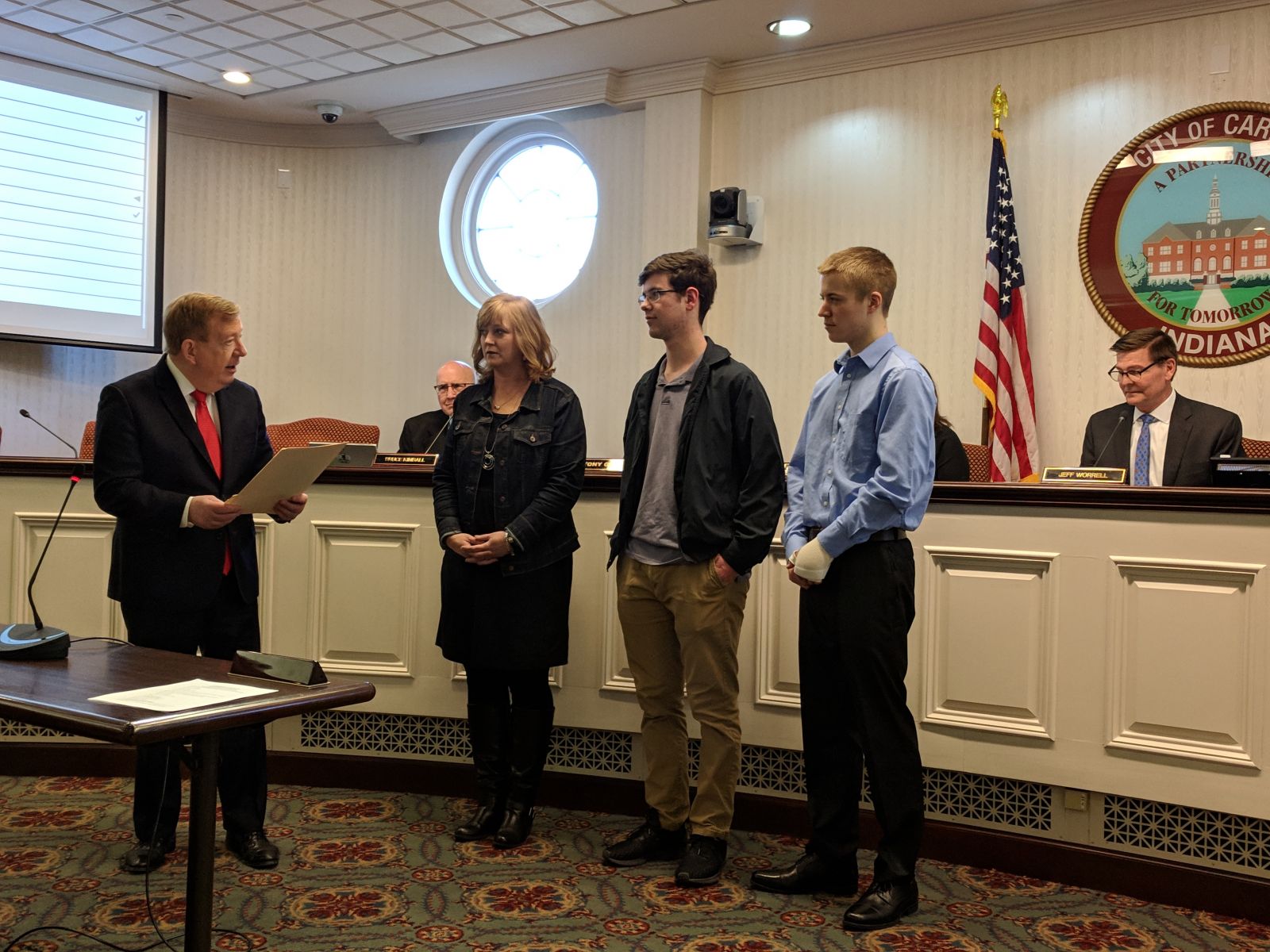
While at SOM, two of my most rewarding experiences were serving as a co-leader of the Technology Club and volunteering as a Career Coach. Through both of these roles, the greatest fulfillment I received was working with MBAs and MAMs who were interested advancing their careers in the technology industry or in a technology role. I’m grateful for these experiences as they allowed me to make many friendships and give back to the SOM community.
In these capacities, I drew upon the thorough careers curriculum that the CDO developed and that I experienced as a first-year. One of the most valuable frameworks that the CDO provided us was an organization template to manage our target company list, job applications and networking outreach. While applying to internships positions as a Silver Scholar, I thoroughly leveraged this template by tracking 232 target companies and job postings and was fortunate to land my dream internship working in product at LegalZoom.com. The template was very useful in that it provided structure to what otherwise seemed like a disorganized and chaotic process.
After graduating from SOM, I headed back to LegalZoom to rejoin my amazing team in R&D and worked there until my boss and close friend, May Lu, and I decided to leave the company and found a startup together. We recruited our third-cofounder, Richard Lin, a brilliant Berkeley technologist to join us. All three of us felt passionately about the jobseeker’s dilemma having seen our classmates, friends, and family go through the job search process and we felt that if we could solve some of the jobseeker’s pains, we could make a social impact.
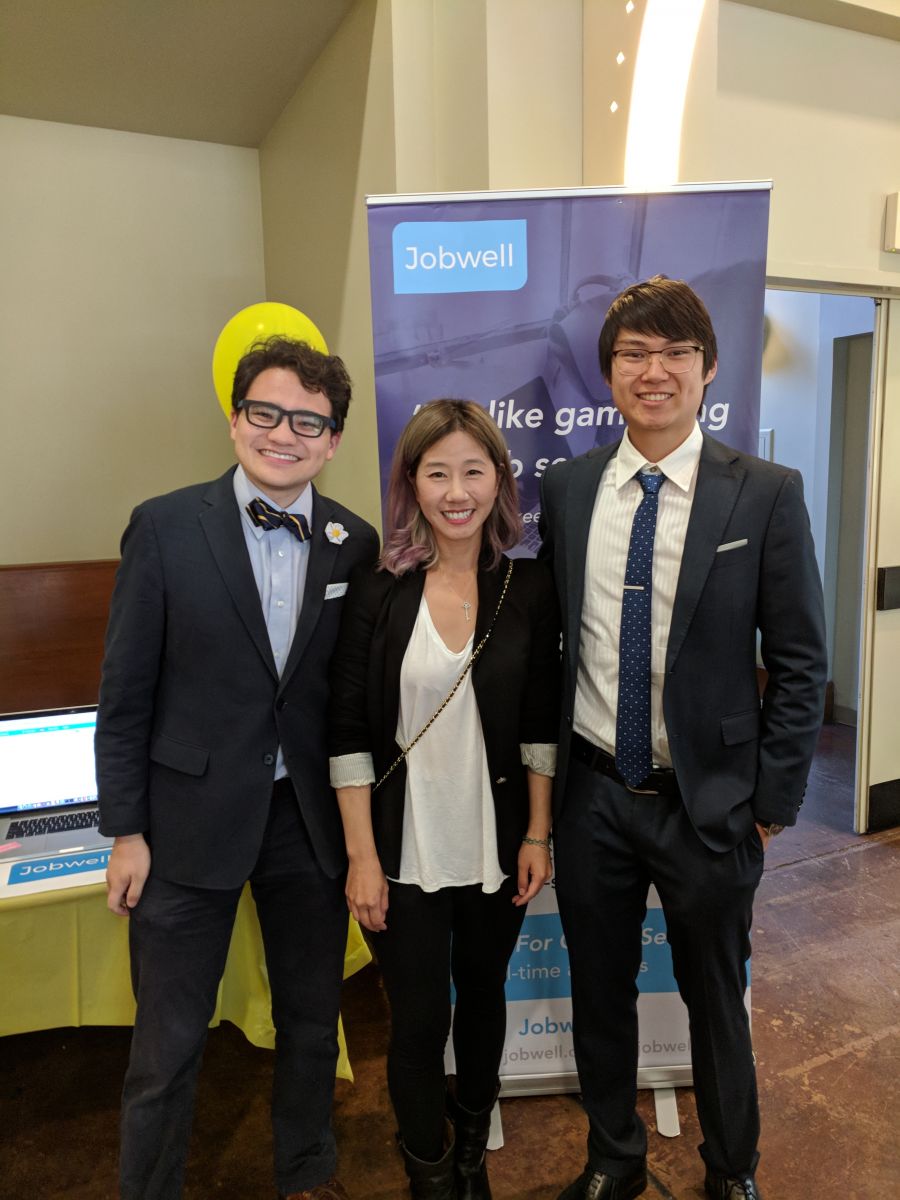
We spoke with hundreds of jobseekers to understand their needs and wants. Inspired by the CDO’s concept of using a template to help guide students, the customer problem we chose to address was helping individuals reduce the friction in their job search by developing a jobseeker CRM service.
We developed our MVP around a guided process that leveraged the best aspects from some of our favorite tools - such as Trello - and baked in job-hunting good practices to develop a platform that is uniquely tailored to the jobseeker.
This MVP would then enable us to test other services and features, particularly leveraging machine learning so that in the future, we could provide both tactical and strategic recommendations and guidance to jobseekers throughout the entirety of their career.
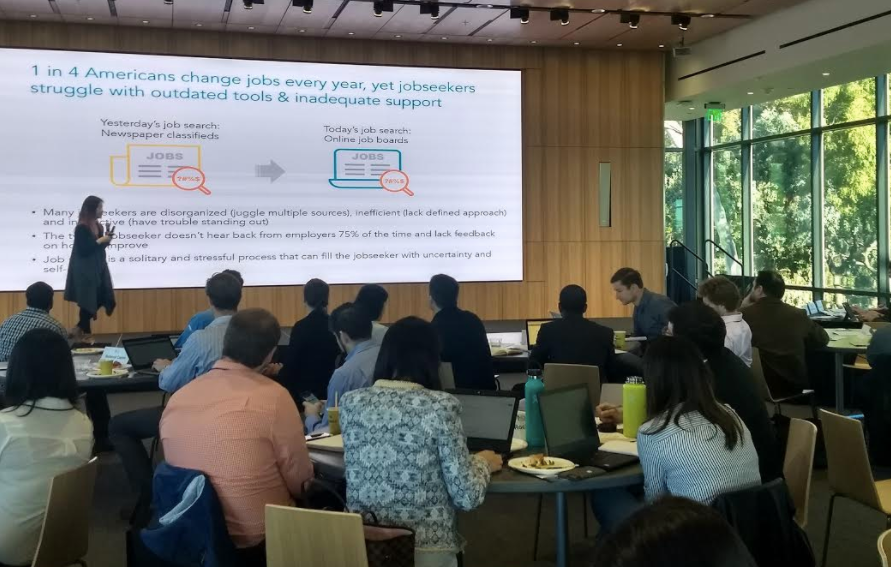
We’ve been fortunate to receive tremendous support from the SOM community and count many members to be our strongest supporters! We’re grateful to the Dorm Room Fund and particularly managing partner Mario Ruiz, SOM ‘19, in believing in us and our mission.
What advice would you give to current MBA students who are interested in pursuing an entrepreneurial path after graduation?
There are so many outstanding opportunities for SOM students who are interested in pursuing entrepreneurship - and the number of opportunities continue to grow each year. I recommend taking as many classes as you can from our in-house experts! Kyle Jensen and Jennifer McFadden SOM ‘08 of the Program on Entrepreneurship teach many great courses in both the Fall and Spring semesters and I credit their courses for helping me develop the frameworks and processes that I now use at Net Literacy and Jobwell.
I’d also suggest taking classes outside of SOM and getting to know as many of your classmates at Yale as possible. Some of the most meaningful connections I’ve developed as an entrepreneur were with Yale College and other Graduate and Professional School classmates beyond Evans Hall. In fact in one class, CPSC 113 / MGT 659 Programming and Entrepreneurship, I met my friend Nick Lovejoy HCM ‘16, and have developed a friendship for life. He is working on his successful startup, Staple Health, We have weekly standing phone calls to keep each other apprised of any updates and challenges, serve as a sounding board for one another, and work through lows and celebrate the highs that are associated with being an entrepreneur.
Finally, leverage as many opportunities as you can to reach out to alumni and other Yale entrepreneurs. I am consistently impressed at the degree with which SOM’s entrepreneurship community rallies behind new entrepreneurs. Very similar to other industry support, alumni are generous with their time and advice, confirming that in choosing SOM, I chose a network and community that I can draw upon for life.
Could you share more about what you and your team are currently working on at Jobwell and Net Literacy?
At Net Literacy, we are beta testing a new initiative called “AI Literacy” which will formally launch in June. This program was created to help teach middle and high school students about AI and is designed to increase students’ critical thinking skills as they traverse the Internet and become cognizant of how technologies, such as deepfakes, now can mean that “seeing isn’t always believing”. Our editors have just begun populating the site with content and curated resources and we have lots of work ahead of us. When completed, the site will serve as a resource for parents, teachers, youth workers, and students.
At Jobwell, we’re continuing to listen to customers and develop services that meet their most pressing pain points. We’re excited to be working on improving our base CRM platform based upon the feedback from our users and are iterating on a product our team developed at a hackathon - the development of the world’s first interview-preparation chatbot. Stay tuned for further developments!



